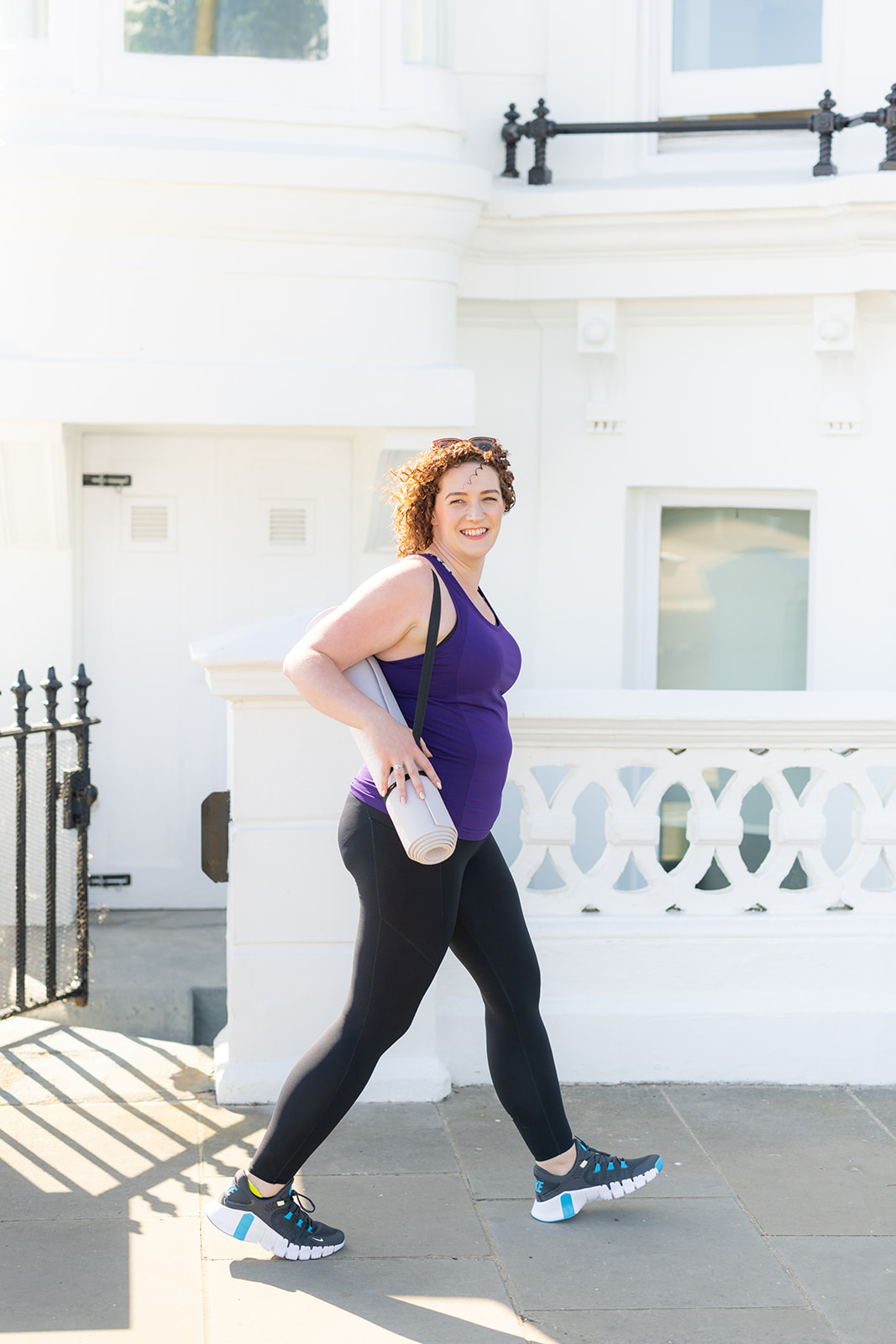Horsham-based female personal trainer, Becky, provides one-to-one personal training sessions at a local gym. Here, she explains what personal training means to her and her clients…
Before I started going to the gym myself, I had a strong preconception of what personal trainers did and who they were for. My assumption was that personal training is an expensive, luxury service, which is reserved for the 1%. Because I’d often hear celebrities talking about “my trainer” or “having personal training”, particularly in the context of training to play a certain role in a film or TV show (the fact that many of them use personal training to achieve specific looks is a topic for another post), and because I had neither that goal nor their wealth, I assumed it wasn’t a service for “normal” people.
Even within a slightly more realistic context, due to my perception of the expense of personal training services, I assumed that non-celebrities who could afford PT were typically those in C-suite positions, or those with vast wealth accumulated via other means. Whilst there’s no denying that, for many, personal training is far from considered one of life’s most basic needs, in the same way that things like food and housing are, I discovered that it’s also not exactly an out and out luxury service either.
So what does personal training mean?
In simple terms, personal training is a service tailored to the individual and their fitness goals. The term is generally used with reference to strength and endurance training. This could take place in a gym environment, outdoors using similar equipment, or at the client’s home. It may mean that you have some sessions with a personal trainer, and train independently between these, or you might train exclusively under your personal trainer’s supervision.
The majority of personal training clients will be looking to improve strength and/or endurance either to enhance their performance in another sport, support their mental and physical health generally, or improve the specifics of weightlifting. Other goals could be to prepare for a fitness event, change body composition, or learn a new activity.
Some parts of the personal training service will vary from trainer to trainer – in the UK, the profession is unregulated, so each trainer has freedom to design their own service.
What is personal training like?
Let’s be a little more specific and discuss my personal training services. I’m a cancer exercise specialist, having been through cancer myself, and initially qualified in this area in 2021. I’m soon to add a specialist qualification in exercise rehabilitation for COPD to my list of achievements! I love all kinds of rehab work, whether you’ve tripped over a coffee table, strained something during a long run, or are struggling to get back into exercise following an unrelated condition.
And I also often find myself supporting women who’ve never enjoyed exercise, but have come to appreciate that their bodies and minds would benefit, so want guidance from someone who’s walked a similar path.
The majority of my personal training sessions are delivered one-to-one at a gym in Horsham. All booking and payment is made directly with me, as I’m self-employed, so we’ll agree a time to suit us both, and spend an hour running through the session I’ve planned. Throughout the hour, I’ll determine the exact weights I’d like you to be using, for how many sets and repetitions. Most importantly, I’ll ensure that you’re performing any movement safely and confidently, and that you know how to set up the equipment you’ll need.
Afterwards, I’ll send you the agreed programme, so that you can use it by yourself if you wish.
This is the most common way clients would like to work with me. However, I work with a variety of people. Due to my specialism, some people want or need to train at home. If you’re comfortable with me visiting, I’m happy to train you at home. I’ll then set you up with a programme which suits your needs, and can be completed with whatever equipment you have available.
What is not involved with personal training?
This is just as important as stating what is involved! Personal trainers generally aren’t qualified to coach in any other disciplines. I’m not a yoga teacher, nor a pilates one. I’m also not qualified as a running, swimming or cycling coach.
So I can’t teach you those things or design you most of those workouts… However, I can support you by making a plan for your week – for example, if there’s a dance class that you enjoy going to, and want to know which days are then optimal to strength train on, I’ll tell you. If you’re trying to improve your endurance for cardio activities such as running or swimming, I can set you a session for the right length of time and intensity – I just can’t coach you on the technique element.
I love helping people to plan out their weeks – I’m inherently organised, and also appreciate that one of the solutions to the classic problem of struggling to find time to train involves me listening to a client and maximising the efficiency of their sessions via my programming. If you tell me you’ve got 45 minutes to train on a given day, I will make sure that target is met – there’s no need to be training for 60+ minutes if the time just isn’t available.
Finally, I can’t and won’t provide you with a meal plan. I’m not a dietitian. I can give general guidance on making sure that you’re consuming items from a range of food groups, and explain why protein and carbohydrate intake is important for performance. I can go no further than that.
Personal training means that…
You get the service that you want and need. Or, it should do. If that’s not the case, there are plenty of alternatives to your current provider. It might just be a case of trying something different…
